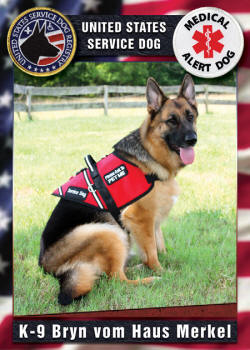|
Scroll WAY down for
Full Navigation
Basic Navigation on header |
|
|
COURAGE - CHARACTER - PREDICTABILITY
Show
puppies by Anatomy; Loyal Companions
and Protection by Nature; Health and Longevity by good
genetics; and proven by Health
Testing Certifications. Brought to you by a
thoughtful knowledgeable trusted
breeder of over 45 years.
Breeders of the finest quality Schutzhund/IPO
titled & Breed Surveyed German Shepherds in the United
States. Our breeding
program maintains
the integrity of the
German Shepherd's heritage to preserve the ideal human-canine bond.
"BREEDING HEALTHY DOGS BY DESIGN"
Our Merkel Geneology is from
Haßloch, Germany
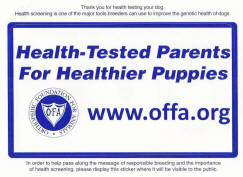
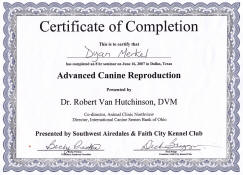
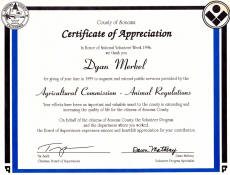
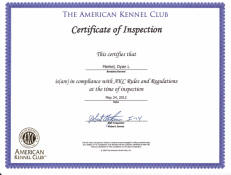
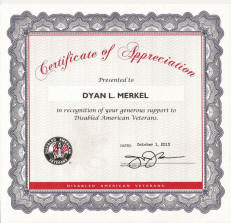
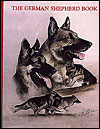 
We are published in these books
BREEDER
QUALIFICATIONS:
KENNEL NAME:
Haus Merkel
Breeder Name: Dyan
Merkel
Website:
http://www.hausmerkel.com
Location: North
Texas
Contact Info:
vhmerkel@yahoo.com
214-755-5755
HEALTH TESTS:
Hip/Elbow
Certifications: Yes
Degenerative Myopathy
Certifications: Yes
Thyroid tests: Yes
CERF tests: No
TRAINING:
Titles/certifies
breeding stock in
discipline?: Yes
BREEDING STOCK:
Raises breeding
stock from
puppies:
Yes
Titles dogs bred on
premise: Yes
Imports titled
breeding stock: Yes
Buys from other
Breeders: NO
MORE!
SCHUTZHUND/IPO:
Has trained in
Schutzhund: Yes
HOT from puppy to
SchH3: Yes
HOT and bred to
SchH3: Yes
CONFORMATION/BREED
SURVEY:
Show ratings: Yes
Breed
survey: Yes
BREEDER
ACCOMPLISHMENTS:
V Putz vom Haus
Merkel SchH3, Kkl 1a
V Ulla vom Haus
Merkel SchH3, Kkl 1a
V Zessa vom Haus
Merkel SchH2, IPO3,
Kkl1a
V Riesa vom Haus
Merkel SchH2, Kkl 1a
V Puma vom Haus
Merkel SchH2, Kkl 1a
V Emma vom Haus
Merkel SchH1, Kkl 1a
SG Wickie vom Haus
Merkel IPO1 a
SG Vessa vom Haus
Merkel IPO1 a
SG1 Clar vom Haus
Merkel SchH1 a
Ch Merkel's Opium
SchH1
V Merkel's Arletta
SchH1, a
SG, VP2 Nixe vom Haus
Merkel BH, AD, a
SG Feli vom Haus
Merkel BH, AD, a
Ch Merkel's Leica
UDT, OFA
Merkel's Leibchen
Shiloh UDT, OFA
Ch Merkels Sangria
UDT, OFA
United States
Grand Victrix
Ch
Merkels Vendetta ROM, OFA
Ch Merkel' Quaestor
CD, ROM, OFA
Ch Merkel's Essence
UD, OFA
Merkel's Coda vom
Jennerick CDX, OFA
National
Certified Search &
Rescue
Lieb vom Haus Merkel
OFA,
National
Obedience
Winner
Ch Merkel's Cut Up
of Timmee UDT, OFA
Certified United
States
Service Dog
Bryn vom Haus Merkel
CGC, OFA
Certified United
States
Service Dog
Fred vom Haus
Merkel
Ch Merkel's The
Cutting Edge OFA
Ch Merkel's Virtual
Reality OFA
Ch Merkel's Tequila
CD, OFA
Ch Merkel's Sante Fe
OFA
Merkel's Spellbound
ROM,OFA
Merkel's Emma ROM ,
OFA
Merkel's Estes CD,
near ROM
2009 Annual Achievement Award Recipient
Ch Merkel's Heart's are Wild
CDTDTC HIC CGC
TDI
OFA
Ch Merkel's Heart to
Heart CD, OFA
PRODOMINANT LINES
USED:
World Sieger Larus von Batu
SchH3 Kkl 1a
World Sieger Zamp vom Thermodos
SchH3, Kkl 1
World Sieger Yasko vom
Farbenspiel SchH3,Kkl 1a
VA Dux della
Valcuvia SchH3,
Kkl1a
Kirschental
WRITTEN GUARANTEE:
Yes
EDUCATION
AVAILABLE:
Yes
LIFETIME
SUPPORT:
Yes
YEARS AS BREEDER:
46
|
S I T E
N A V I G A T I O N
About our 56 years in the Breed
•
Our German Shepherd Males
•
Our German Shepherd Females •
Compare with other Breeders
•
Our References
•
German Shepherd Puppies for Sale
•
Older Puppies/Teenagers for Sale
•
Adult Females for Sale
•
Adult Males for Sale
•
Puppy Pricing/Contract
•
MORE LINKS:
Neutering your puppy
•
Deposit
•
Pricing,
Contract
•
Adult &Young
Males for Sale
•
Adult &Young
Females for Sale
•
Our German Shepherd Stud Dogs
•
Breeding Requirements for Stud
•
Puppy Mill Article •
German Shepherd Rescues •
Memorials
•
Articles
•
OFA •
Classifieds
•
Dog Food Analysis •
Worming &
Vaccination Schedule •
OUR OTHER PETS•
Excellent Link to pet/health videos
•
Any health care links located here
are NOT to replace a veterinarian visit; please take your dog to a vet
immediately at any sign of odd behavior or any symptoms of illness or
injury. Call your vet and describe your dog's symptoms with any of your
concerns about the dog's well-being. Your veterinarian may discover
changes in your dog's health that you have overlooked. It is always
better to err on the side of caution
HEALTH ARTICLES:
von Willebrand
Disease •
MORE ARTICLES:
Other Links
•
Links
•
Contact
•
Add your Link •
Members of
GSDCA
•
WDA
•
Schutzhund USA
•
My beloved mother
(Dorothy Conner Merkel
Obituary)
Love, kindness & laughter was her gift to all.
Always on my mind forever in my heart!
|
THIS IS WHAT WE FEED & RECOMMEND
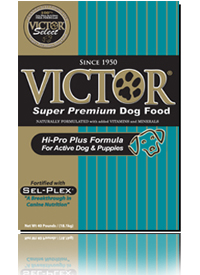
Click photo to go to their site
VICTOR
SELECT HI-PRO PLUS
Calorie Content (calculated):
ME 3894 kcal/kg;429 kcal/cup
Formula for Active Dog &
Puppies contains high levels
of Proteins and Energy with only 30%
carbohydrates! This super premium food is
naturally formulated with added vitamins,
minerals and other additives that work
together to support a strong and healthy
immune and digestive system. As with all
Victor dog foods, this formula is free
from Corn, Wheat, Soy or Glutens and is also
made using GMO Free. Dogs love the
all natural flavor of this super premium
food
|
HOW TO GREET A DOG

Click on photo for the
BEST INFORMATION YOU CAN EVER HAVE ON MEETING OTHER PEOPLES
DOGS-Children really need to learn this.
READING A DOGS BODY LANGUAGE
attribution (C) DFDK9
www.dfdk9.com

Canine body language
http://dfdk9.wordpress.com/
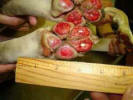
THIS is why you do not walk your dogs on asphalt or concrete
in the summer. If you see someone walking their dogs on
asphalt or concrete, PLEASE educated them and get the pet to
cooler ground. Original post was from Pet Ambulance Victoria
This should be sent to all the veterinarians including the specialists!
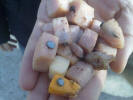
DOG PARK ALERT
We have received two notices.
(1) Nails wrapped in cheese at dog parks in Chicago and
Massachusetts (see pic). (2) from some friends that in
Augusta Maine dog park, antifreeze is being found in doggie
water bowls. Please beware and be careful and PLEASE SHARE
and spread the word
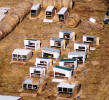
Ever wonder where puppy mill dogs come from? Here's an
example. Many get cooked alive in the sun and freeze to
death in the winter. If you purchase your dog from a pet
store, I can guarantee your "AKC" certified dog came from a
place like this. This one is even better than the ones
I saw in Iowa and Missouri!

Do you recognize she is a Yorkie?
Please do not purchase your pet from a Pet shop, Backyard
breeder or Commercial Puppy Mill.
|
ALL PETS RESCUES
needs your help! |
|
|
 |
|
"The man who rears a
dog must complete what the breeder began..." Max v. Stephanitz; Father of
the German Shepherd Dog
"Fun at the Beach"
 "Fun at
Work"
 "Fun
just hanging out"
|
BLOAT
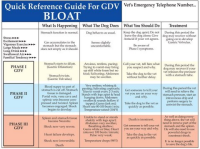
Click chart to view larger version |
This is a real
combination of symptoms that spells out EMERGENCY. These are the classic
symptoms of a condition referred to as "bloat" - a dog that is pacing,
restless and has unproductive attempts to vomit.
This is a common problem in large breed
deep-chested dogs but can also occur in smaller dogs.
Basically what happens is this - the
stomach twists causing the blood supply to the stomach to be compromised
then leads to tissue death. As tissues are damaged, toxins are released
and a sequence of events occurs that if left untreated, leads to death.
If you ever notice these symptoms in
your dog, call your local veterinarian or emergency clinic as soon as
possible.
This is a condition that is fairly
common and often occurs in the evening or nighttime hours. It is also a
very expensive condition to treat.
READ MORE...
Dealing with Excessive Barking
The first step to stopping barking is to understand why it is
happening. Dogs bark for all kinds of reasons, including
anxiety, boredom and/or loneliness. Sometimes they bark just
because it feels good. Luckily, most dogs will respond to
one or other intervention to curtail their barking. Whether you
simply bring an outdoor dog inside or take the time to apply
behavior-modification techniques, you can cause a dog to be less
of a nuisance and to be more socially acceptable. |
Removing Skunk Odor
|
|
No need for the tomato juice. Use a mixture of 10 parts hydrogen
peroxide to 1 part baking soda. Add a dash of degreasing
dishwashing soap and pour into a spray bottle. Spray liberally
over dry coat and allow to air dry. Avoid eyes. Works on other
objects, too! |

Click link below to enjoy the Birding Site
FOR THOSE
WHO LIKE BIRDING
FDA DOG FOOD RECALLS
|
|
|
|
TRAINING
YOUR GERMAN SHEPHERD PUPPY
-
Start your training the
moment your puppy comes home.
-
Always give your dog a
treat when you call him to you.
-
Train before meals or
when your dog is relaxed
-
Your German Shepherd
puppy was bred for extreme trainability so limit your training to under
5 minutes (short and sweet).
-
A daily routine builds
good learning habits.
-
Always end on a high
note, when the puppy has done what you asked right.
-
Do not overtrain.
Your puppy will lose interest and not retain what it did learn.
-
Praise, Praise, Praise.
-
Training up until a year
of age is all motivational. We start with food. Vienna hot
dogs cut in little pieces. There are lots of training treats
available at Pet Markets. Just make sure that whatever you do get
it must be in tiny pieces for the training or your dog will be so busy
eating the biscuit that you won't have time for the training. You
want your puppy to quickly eat the treat and immediately after look at
you for more.
-
Hold your treat up by
your face so that the puppy will learn to look you in the eye. If
you don't have your puppies attention your puppy will not learn.
-
Always use a quiet area
with few distraction or interruptions.
-
Only one person at a time
should train. Children should always be supervised by a
knowledgeable adult.
-
Consistancy counts.
I will spend 2 weeks alone on sit. Twice a day for a few minutes.
After the puppy is good with the sit, I will turn my back, call the pup
and generally the puppy will come around to my front and sit directly
infront of me.
-
Stay and Down are
negative commands and I generally don't work on them until the dog is
older. However you can teach the down easily with food so it
is not associated with negative training.
-
Heeling can be taught by
holding a treat/toy infront of the dogs face as he walks on the left
side of you. The dog will associate you with food and keep his
eyes on you instead of everything else that is out there.
-
NEVER hit or shout at
your dog for not obeying a command.
-
Harsh corrections can
result in fear and aggression - both are counter productive to learning.
-
If your dog misbehaves,
he should be reprimanded consistenly and immediately. A firm,
verbal rebuke is enough. Don't rebuke your dog for doing something
you didn't see at the moment.
TEACHING SIT:
Hold the treat so the dog
looks up to get it. As the dog tips its head up it will they will
automatically sit. Consistancy of working this way with the sit will
produce the response on command.
TEACHING DOWN:
Command your dog to 'sit',
then sit down in front of him. Hold a small piece of food in front
of his nose. As you command 'down', move the food down to the ground
so his nose follows it. If he need help, put your hand on his
shoulders and guide them down. When he is lying down, praise him and
give him the treat. You can also push the treat between your puppy's
front legs, as he tried to follow it his back end will slide into a down
position. Praise him and give him the reward.
TEACHING (HERE) COME:
From the very
first day you bring your puppy into the house he should be given a treat
every time you call him to you. After your puppy learns the sit you
can combine the 'come' with the 'sit' and then give the treat/reward.
And always lots of praise and excitement when your dog comes to you.
NEVER, NEVER call your dog to you for punishment. NEVER use his name
negatively. If you instill in your dogs from day one that it
is exciting and rewarding to come to you he will sail through his teenage
stage eagerly wanting to please you. This could also save your
dogs life to know that he is 100% on the recall.
I recommend
once you have these commands working smoothly with your dog that you join
a local obedience club and work on putting all of this together in a
routine so you can be a team. This is usually after the teenage stay
and about 13 -14 months of age.
CRATE
TRAINING:
We crate train
all puppies from the day that they are weaned. My advice to you when
you start is to put the puppy in the crate and then take the whole family
to the movies so you won't have to listen to him throw a temper tantrum.
They get use to it quickly. Do not take the puppy out if he is
throwing a fit. Once your puppy gets use to it you will be able to
tell when he has to go to the bathroom...his cry will be much different.
Housebreaking
Rule #1:
If you don't catch your puppy making an "accident," don't punish
him for it.
Housebreaking Rule #2:
When he does it right outside, praise him!
Housebreaking
your new puppy doesn't have to be hard or messy, nor should it take very
long if done right. Getting your dog to do its business outside is a matter
of training, and the more attention you can give to your puppy during
this crucial training, the shorter this awkward stage will last.
Methods of housebreaking
Starting Inside: There are several ways to housebreak
a puppy. With the first, you can put down papers or pretreated pads, encouraging
them to use these areas for going to the bathroom. The pads are scented
with a chemical that attracts the puppy to use them. Whenever you see
them starting into their "pre-potty pattern," such as walking
around and sniffing the floor, you gently pick them up without talking
and carry them over to the papers/pad and then praise them when they go
to the bathroom.
When all goes well and they are using the papers consistently, the papers
are either moved closer to the door and/or another set is placed outside.
The transition is made from concentrating the toilet habits to one spot
inside the home to one spot outside the home. Finally, the papers inside
are eliminated. The only problem with this method is that for a period
of time it encourages the animal to eliminate inside the home. In our
experience, housebreaking may take longer when this method is used.
Crate Training: The second popular method of housebreaking
involves the use of a crate or cage. Make sure the crate isn't too large
- just big enough to fit their sleeping blanket or mat. Dogs do not like
to soil their beds because they would be forced to lay in the mess. It
works, and while in these confines, most pups will control their bladder
and bowels for a longer time than we would expect. Young puppies, at 8
or 9 weeks of age can often last for 7 or 8 hours, however, we would never
recommend leaving them unattended in a crate for that long in most circumstances.
During housebreaking, whenever the puppy is inside the home but cannot
be watched, he is placed in the crate. This might be while you are cooking,
reading to the children, or even away from the home. The last thing you
do before you put the puppy in the crate is take him outside to his favorite
spot. The first thing you do when you take the animal out of the crate
is another trip outside. No food or water goes in the crate, just a blanket
and maybe a chew toy to occupy his time. Overnight is definitely crate
time. As your faith in the puppy grows, leave him out for longer and longer
periods of time.
Constant Supervision: The last method involves no papers,
pads, or crates. Rather, you choose to spend all the time necessary with
the puppy. This works very well for people who live and work in their
homes, retired persons, or in situations where the owners are always with
the animal. Whenever they see the puppy doing his "pre-potty pattern"
they hustle him outside. It is important that the dog is watched at all
times and that no mistakes are allowed to occur. When he is taken outside,
use a leash or lead to keep him less distracted and watch the puppy closely
- as soon as all goes as planned, he should be praised enthusiastically.
Do not play until after the pup goes so he learns to go quickly on command.
Use Simple and Consistent Verbal cues
Specific
verbal communications will also help the two of you understand what is
desired. It is an excellent idea to always use a word when it is time
to head to the bathroom. We like "Outside?" Remember that whenever
you use a verbal command or signal, it is important that everybody in
the family always uses the same word in the same way.
Once
outside, we try to encourage the pup to get on with the act in question.
We use the phrase "Do your numbers." Others use 'Do It,' 'Potty,'
or 'Hurry Up.' As soon as your pup eliminates, it is very important to
praise them with a "Good Dog" and then come back inside immediately.
Again, make this trip that started outside with a specific word "Outside"
be for a purpose. If we are taking the pup out to play with a ball or
go for a walk we will not use this word even if we know they will eliminate
while we are outside.
If
Accidents Happen
One
of the key issues in housebreaking is to follow Rule Number One: If you
do not catch your puppy doing it, then do not punish him for it! We do
not care what someone else may tell you or what you read, if you find
a mess that was left when you were not there, clean it up and forget it.
Discipline
will not help because unless you catch the puppy in the act, he will have
no idea what the scolding is for. At this point in his life a puppy's
memory is very, very poor. Your puppy has urinated and defecated hundreds
of times before he met you. Nobody made a fuss before and the pup will
not relate the punishment, regardless of its form, together with something
he has done without incident numerous times before. Especially if he did
it more than 30 seconds ago! Puppies are just like our children. Unless
something was really fun (and a repetitious act like going to the bathroom
is not), they are not thinking about what they did in the past. They are
thinking about what they can do in the future.
The
same should be said as to your first reaction when you actually catch
them in the act of urinating or defecating. Do not get mad. Quickly but
calmly pick them up and without raising your voice sternly say "No."
Carry them outside or to their papers. They are going to be excited, but
stay there with them a while and if they finish the job, reward them with
simple praise like "Good Dog."
Remember,
though the housebreaking process may get frustrating at times - especially
the times cleaning up the occasional accident - be patient and stay calm.
If you want housebreaking to go quickly, regardless of the method you
use, follow these simple tips and try to spend as much time as possible
with your puppy. |
|
|
This site
designed and maintained by Dyan Merkel of
DLM DESIGN STUDIO
|
|

